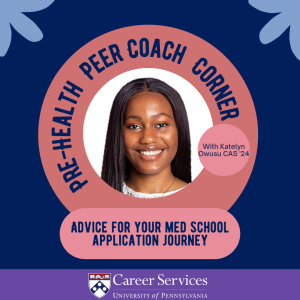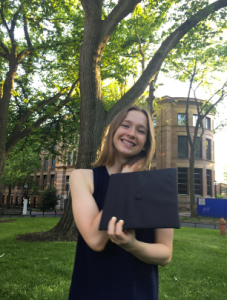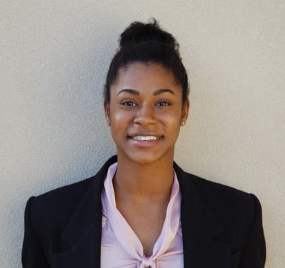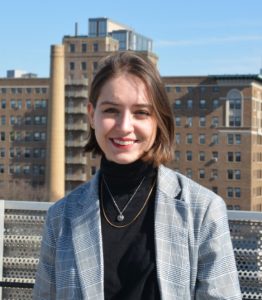
Welcome back to the Pre-Health Peer Coach Corner where we share tips, tricks, and advice for being Pre-Health at Penn.
In this week’s post, we’ll be exploring the application process and our contributors are sharing some major tips on staying organized and calm during this busy and stressful time.
Hint: If you’ve never used an Excel tracker before you might want to get acquainted now.
Note: AMCAS is the American Medical College Application Service. Applicants to medical school use AMCAS to submit their primary applications and apply to most medical schools in the United States. TMDSAS is the Texas Medical & Dental School Application Service, which is the official portal to apply to schools in the state of Texas, a common option for Texas residents. AACOMAS is the American Association of Colleges of Osteopathic Medicine Application Service, which allows applicants to apply to osteopathic medical schools.
Meet the Panel: Sara Papp, CAS ’20, Taylor Cooper, CAS ‘19, Eve Frangopoulos CAS ‘20, and Benjamin Padon, CAS ‘21
 My name is Sara, and I graduated from Penn in 2020 with a Biology degree. I moved to Texas after graduation to pursue immunology research and decided to take two gap years before starting medical school. I will be attending UT Southwestern in August!
My name is Sara, and I graduated from Penn in 2020 with a Biology degree. I moved to Texas after graduation to pursue immunology research and decided to take two gap years before starting medical school. I will be attending UT Southwestern in August!
 Hi! My name is Taylor Cooper, and I’m a current M1 at Dartmouth’s Geisel School of Medicine! I graduated from Penn in 2019 where I majored in HSOC and minored in Chemistry. During my time at Penn, I was on the women’s volleyball team and enjoyed working with and partnering with the local Philly community through non-profit organizations like Classroom Champions! Before starting medical school, l lived and worked in Denver, CO as a strategy and operations senior analyst for a large healthcare company. When I’m not studying, you can probably find me working with Geisel’s Urban Health Scholars, practicing yoga, or hiking one of the many trails in northern New England!
Hi! My name is Taylor Cooper, and I’m a current M1 at Dartmouth’s Geisel School of Medicine! I graduated from Penn in 2019 where I majored in HSOC and minored in Chemistry. During my time at Penn, I was on the women’s volleyball team and enjoyed working with and partnering with the local Philly community through non-profit organizations like Classroom Champions! Before starting medical school, l lived and worked in Denver, CO as a strategy and operations senior analyst for a large healthcare company. When I’m not studying, you can probably find me working with Geisel’s Urban Health Scholars, practicing yoga, or hiking one of the many trails in northern New England!
 My name is Eve Frangopoulos. I am a graduate of the class of 2020 and am currently studying medicine at SUNY Downstate. During my undergraduate career I majored in Biology and minored in Gender & Sexuality Studies. During my gap year I worked in the Pharmaceutical industry conducting clinical research.
My name is Eve Frangopoulos. I am a graduate of the class of 2020 and am currently studying medicine at SUNY Downstate. During my undergraduate career I majored in Biology and minored in Gender & Sexuality Studies. During my gap year I worked in the Pharmaceutical industry conducting clinical research.
 Hi there! My name is Ben Padon, and I graduated from Penn in the class of 2021 with a major in Neuroscience and minors in Chemistry and Healthcare Management. While at Penn, I played on the football team and did research in the school of medicine. Since graduating, I’ve been living at home in Houston and doing research at Texas Children’s Hospital. I’m currently undecided on which medical school to attend in the fall, but will be making the decision soon!
Hi there! My name is Ben Padon, and I graduated from Penn in the class of 2021 with a major in Neuroscience and minors in Chemistry and Healthcare Management. While at Penn, I played on the football team and did research in the school of medicine. Since graduating, I’ve been living at home in Houston and doing research at Texas Children’s Hospital. I’m currently undecided on which medical school to attend in the fall, but will be making the decision soon!
What part of the AMCAS application took the most time to complete?
Sara: The secondaries for sure. I didn’t realize there would be such a quick turnaround between when I submitted my initial application to Medical School like my primary application and then receiving secondaries. I had as many as five to ten a day so those weeks were just consumed by writing secondaries.
Benjamin: I think the most challenging part of AMCAS is definitely the personal statement. I think that’s where medical schools are going to be looking at to get their first real sense of who you are as an applicant outside of the activities that you’ve done.
Eve: I would say probably the description of all of my activities and deciding which of the activities were the most important to me, I remember, they asked for three experiences or three activities that were very important to you, and you had to elaborate on them. I spent a lot of time on that because the activities I did in college were very important to me and I felt they made me stand out on my application; so, I wanted to make sure that I communicated properly to medical schools that they were a big part of who I was as an undergrad and what I wanted to do in medical school.
Taylor: I would say, I spent a lot of time on my personal statement. I had many versions and was always asking different people to provide me with feedback. The other piece that I think took a lot of time was the activities and most meaningful experiences section. I spent a lot of time making sure that each activity was intentional and that my whole application told a story so that schools were able to get a sense of who I was.
Do you have any tips on writing a good personal statement?
Benjamin: I took the personal statement workshop that Career Services offers which I thought was super helpful. You get to bounce ideas off of people and get their comments and feedback. When you’re writing a personal statement, I think, as important as it is to enumerate the things that you did it’s equally as important to talk about how those things affected you and how that is directing you towards this career.
Taylor: I would say make sure to give yourself enough time to iterate and think. For me, I tried to not only share what I did but why the experience was meaningful and why it is one that I think could help me in my career in medicine. I tried to make sure that each of my different pieces and activities all tied into a common theme while representing different aspects of me.
For Texas residents, did you apply via TMDSAS? How did the TMDSAS application differ from the AMCAS application?
Benjamin: I’m a Texas resident, and since the application and the acceptance rate are more favorable for Texas residents, I decided to apply there because I have a higher likelihood of getting in, not to mention the fact that as an resident I get in-state tuition. Also, there are some great programs here, like Southwestern, Baylor, and UTMB, which has one of the only biosafety level -4 labs in America, which is pretty cool.
The TMDSAS had a couple more questions. And then also, the lengths are a little bit different. I think the AMCAS personal statement is longer than the TMDSAS so I had to go through and do a little bit of editing and cut some things out. Other than that, in terms of the actual information and method of inputting said information, it’s essentially the same. What is nice about TMDSAS is that it has one flat fee across all of the Texas medical schools, so you pay one fee, and then you can send it to as many medical schools as you like.
Sara: I think that anyone who has a Texas residency should take advantage of it. Financially, I think [it is] a good decision with the flat application fee and in-state tuition, and also Texas does prioritize their own students, which gives you a better chance of getting in.
I found the TMDSAS application to be a lot less stressful. There were two additional essays to prep for within the primary application, which means that I was sending in a total of three essays with my initial application to all of these schools, but then, generally speaking, the application portal was the same as AMCAS. So, if you’re applying for the AMCAS, TMDSAS is pretty much the same besides those two additional essays. Also, in terms of the actual schools that participate in TMDSAS, it’s very convenient to have access to all Texas schools and communicate with them. There’s a flat fee for the primary application for all of the schools which makes TMDSAS cheaper.
What did you use to stay organized with all the parts of the application process?
Sara: I had made my school list very early on which allowed me to have a huge system of all these folders already planned, and so when I started getting secondaries, I could just immediately put them in there. This helped me plan months in advance.
Benjamin: Even though there’s no need to kill yourself starting everything extremely early, definitely don’t wait till the last minute. Make sure as soon as it opens up you start filling out the demographic information so you don’t have to feel slammed to do that later on. Also, use the resources available to you – I think the Career Services Office does a good job of keeping you on task, and the extended resume we were asked to do made filling out the activities section way easier because it was essentially just copy-and-paste.
Taylor: I had excel trackers for everything, and in addition, I had some self-imposed timelines that I kept by my desk so I would see them daily and stay on track. I used excel trackers mostly for the secondaries, and I found it was a great way to keep all of the secondaries I received organized by date received, my timeline and the actual due date for submission, themes that the secondary asked about, etc.
What do you wish you would have known before entering the application cycle?
Sara: I have two things. First off, I wish I would have known just genuinely how different it goes for everybody throughout the year, not just in terms of end results. It’s really easy to compare yourself to your friends who are maybe getting interviews a month earlier than you or who you know have four acceptances before you even have an interview. Just because your application is being looked at earlier or later, all those things don’t mean that you’re not a qualified applicant and that you’re not going to get in. It truly is a full year for the application cycle and it’s okay if it takes a full year, so don’t compare yourself to anyone. The second thing is I really advise anyone in the College to not only just meet with an advisor, but also to have a relationship with their advisor and listen to them. They know, historically, how applications have gone, they can give tips on stats and they can really help you gauge where you fall.
Benjamin: I wish I had known to get started on secondaries early, especially since I applied to a lot of schools. You can reuse a lot of them, but I think getting ahead on that is important so you’re not killing yourself trying to write 10 essays in a week. The secondary prompts will change from year to year but oftentimes they’re very similar and you can find sample questions online. If you write a rough draft using those you’re more than likely going to be able to use and repurpose that.
Taylor: One thing I think was helpful to be reminded of is that when you’re looking at schools and trying to find a school, yes think about what the school would like, but at the same time, try and figure out if you can see yourself in that place for four years, and be happy. One of the helpful things about secondaries is that you get a sense of what might be important to certain schools. Use them to see what environment you would potentially be stepping into. Make sure that you are interviewing the schools as much as they are interviewing you.
Eve: I kind of wished I knew how difficult it would be waiting. I think the worst part of the whole application cycle is not actually writing the application, it’s the waiting process. Waiting to hear back about interviews is very hard, because you’re kind of in the dark for many months and you’re in this kind of limbo state.
How did you cope with the anxiety of waiting to hear back from schools?
Eve: I made sure to figure out great ways to spend my time. I think one of the great things about taking a year off is that I actually had free time for the first time in my life. I worked at a nine to five job, so after five o’clock I was really free to do whatever I wanted. I spent a lot of time outside taking walks, reading books, and doing a lot of the things that I didn’t have time for in college. That’s how I occupied my time.




